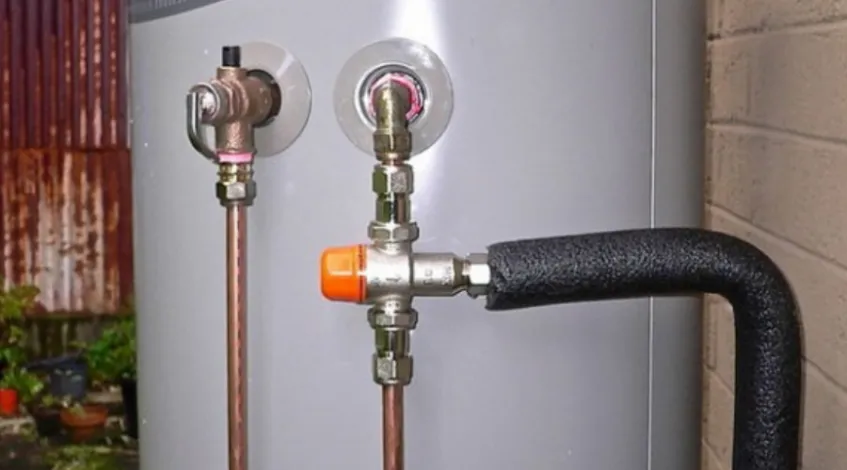A hot water system is one of the essential components in any household, ensuring comfort during showers, dishwashing, and laundry. However, like any appliance, hot water systems can experience issues over time. Neglecting the signs of a malfunctioning unit can lead to more significant, costly problems or a complete breakdown. Being able to identify when is it exactly you need hot water repair can save you from discomfort, expensive energy bills, and potential property damage.
Here are the top five signs your hot water system needs repair and tips on how to address these issues before they escalate.
1. No Hot Water or Insufficient Hot Water
One of the most obvious signs that your hot water system is in trouble is when you don’t get hot water, or it doesn’t stay hot for long. This can be a frustrating problem, especially during the colder months.
Possible Causes:
- A faulty heating element
- Sediment buildup in the tank
- Incorrect thermostat settings
- A pilot light that has gone out (for gas water heaters)
How to Fix It: Start by checking the thermostat settings to ensure they are correctly adjusted to around 60°C (140°F). If the settings seem fine, there might be a sediment buildup in the tank, reducing the heater’s efficiency. Draining the tank and cleaning it can help. For more complex issues like a malfunctioning heating element or a gas pilot light problem, it’s best to call a professional plumber to conduct the repairs.
2. Water Discoloration or Rusty Water
If you notice rusty or discolored water coming from your taps, this is a clear indication that your hot water system is compromised. This issue is often a sign that the inside of the tank is corroding.
Possible Causes:
- Corroded tank or pipes
- Failing anode rod
- Rust buildup in the tank
How to Fix It: Start by checking if the issue occurs only with hot water. If rust is present in both hot and cold water, the problem is likely with your plumbing pipes rather than the heater. If it’s just the hot water, the culprit may be a failing anode rod, which is designed to attract corrosive elements and protect the tank. Replacing the anode rod can prevent the tank from corroding further. However, if the tank itself is rusting, it may be time to consider replacing the entire unit.
3. Strange Noises Coming from the Tank
If your hot water system makes unusual sounds like banging, popping, or rumbling, it’s a sign that something is wrong. While some noise is normal due to water heating, loud or persistent sounds can indicate a bigger problem.
Possible Causes:
- Sediment buildup at the bottom of the tank
- Heating elements struggling to function
- Water boiling inside the tank (which is dangerous)
How to Fix It: Sediment buildup is often the cause of strange noises. Over time, minerals from hard water accumulate at the bottom of the tank, causing the system to overheat and make noise. To fix this, the tank should be drained and flushed to remove the sediment. If the noise persists after flushing, it could be due to a malfunctioning heating element that may need to be replaced. Again, if you’re unsure about the cause, calling in a professional is always a wise decision.
4. Leaks Around the Water Heater
Leaking water is never a good sign, and if you notice water pooling around your hot water system, it’s time for immediate attention. Ignoring this issue could result in severe water damage to your home and a spike in water bills.
Possible Causes:
- A loose valve
- Corroded or cracked tank
- Faulty plumbing connections
How to Fix It: First, inspect the valves and connections for any loose fittings and tighten them if necessary. If the leaks are coming from the tank itself, corrosion or cracks might be the culprit. A corroded tank often requires a complete replacement, as repairs are not viable. It’s also important to ensure that the temperature and pressure relief (TPR) valve is functioning correctly, as this valve releases pressure to prevent explosions.
5. Water Temperature Fluctuations
If your hot water system delivers inconsistent temperatures — too hot one minute and too cold the next — it could indicate a deeper issue within the system.
Possible Causes:
- A malfunctioning thermostat
- Broken heating element
- Sediment buildup affecting heat distribution
How to Fix It: Start by checking the thermostat to ensure it’s working correctly and set to the right temperature. If you find that adjusting the thermostat doesn’t fix the issue, the heating element could be broken, which will require replacement. Sediment in the tank can also lead to fluctuating water temperatures, so draining and flushing the tank can improve heat distribution and restore consistent water temperatures.
When to Call a Professional
While some minor issues with your hot water system can be handled with DIY fixes like adjusting the thermostat or draining the tank, many problems require professional assistance. If you’re dealing with complex issues like corroded tanks, malfunctioning heating elements, or gas line problems, it’s safer and more cost-effective to enlist the help of a licensed plumber. They can diagnose and repair the issue efficiently, preventing further damage and ensuring the longevity of your system.
Conclusion
Your hot water system plays a crucial role in maintaining the comfort and functionality of your home. Recognizing the early signs of trouble — from insufficient hot water to leaks and strange noises — allows you to address problems before they become major. Regular maintenance, such as flushing the tank and checking the thermostat, can help extend the life of your hot water system. However, if you encounter any serious issues, don’t hesitate to reach out to a professional plumber for expert advice and repair solutions. Proper care and timely hot water repair will keep your hot water flowing smoothly and efficiently for years to come.



